RAINN today announced the release of a new PSA, #WontStayQuiet, featuring survivors, their loved ones and allies including actor Aisha Dee of FreeForm’s The Bold Type. We, as advocates and survivors will use our collective voices to forge a community of support and healing. Sexual violence must end and we #wontstayquiet until it does.
The #WontStayQuiet PSA script was inspired by each of the video participants stories and reasons why they work to end sexual violence. Meet each survivor and ally below, then join the chorus online because together we #WontStayQuiet. You can find the full PSA here for sharing purposes.
Don't Want to Stay Quiet?
Add the #WontStayQuiet frame to your Facebook profile photo or download the transparent image here and add to your photo.
Share online with our social media scripts:
- "I am a survivor of sexual violence and I #WontStayQuiet. rainn.org/wontstayquiet"
- "Sexual assault happens every 73 seconds—that’s why I #WontStayQuiet. rainn.org/wontstayquiet"
- "Until every survivor can get justice, I #WontStayQuiet. rainn.org/wontstayquiet"
- "Until every survivor’s story is met with compassion, I #WontStayQuiet. rainn.org/wontstayquiet"
- "Until every survivor knows that they are not alone, I #WontStayQuiet. rainn.org/wontstayquiet"
Meet the PSA Participants:
Why do you refuse to stay quiet?
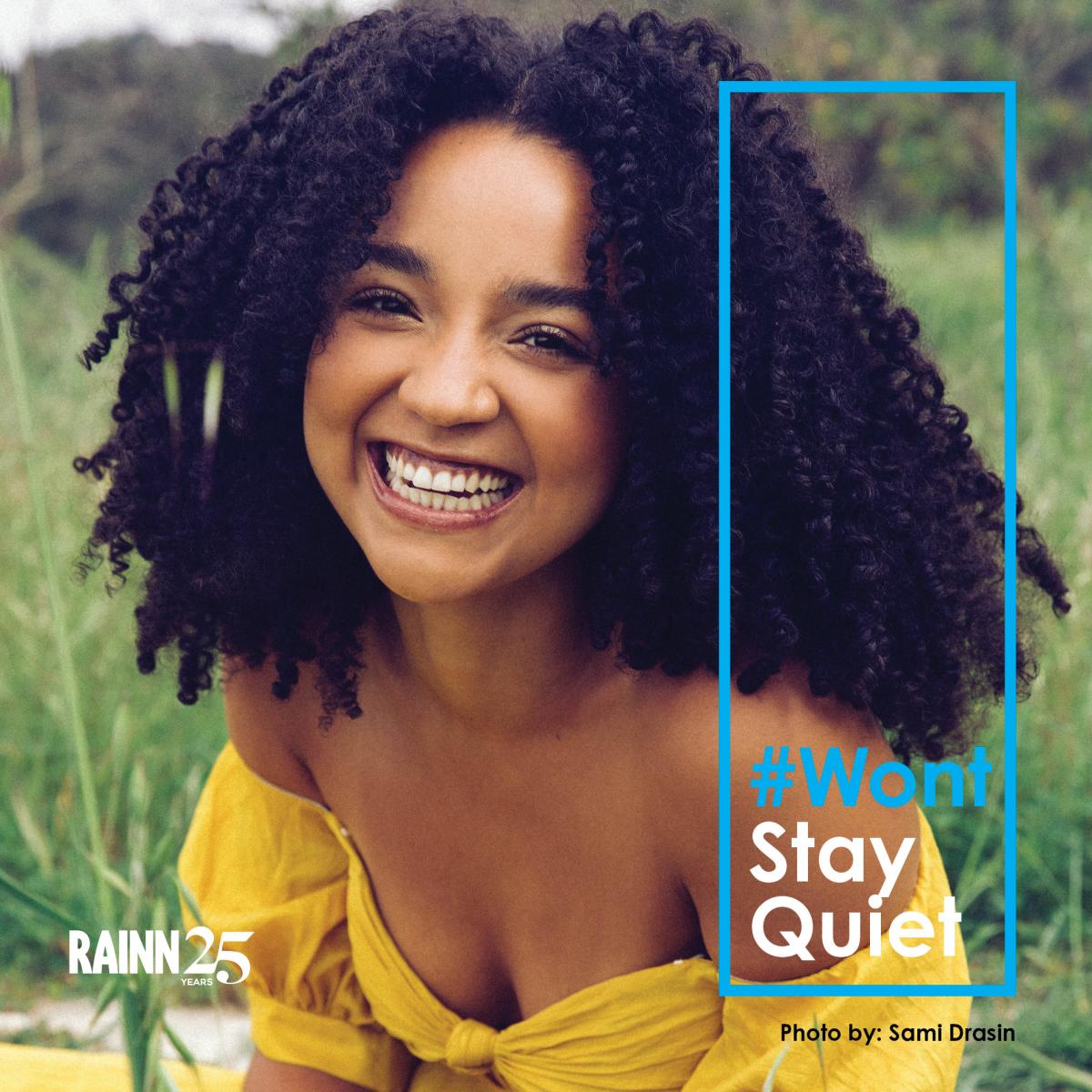
“This is a movement of empowerment to unite survivors and bring about social change. I refuse to stay quiet because we’re stronger when we stand together.”
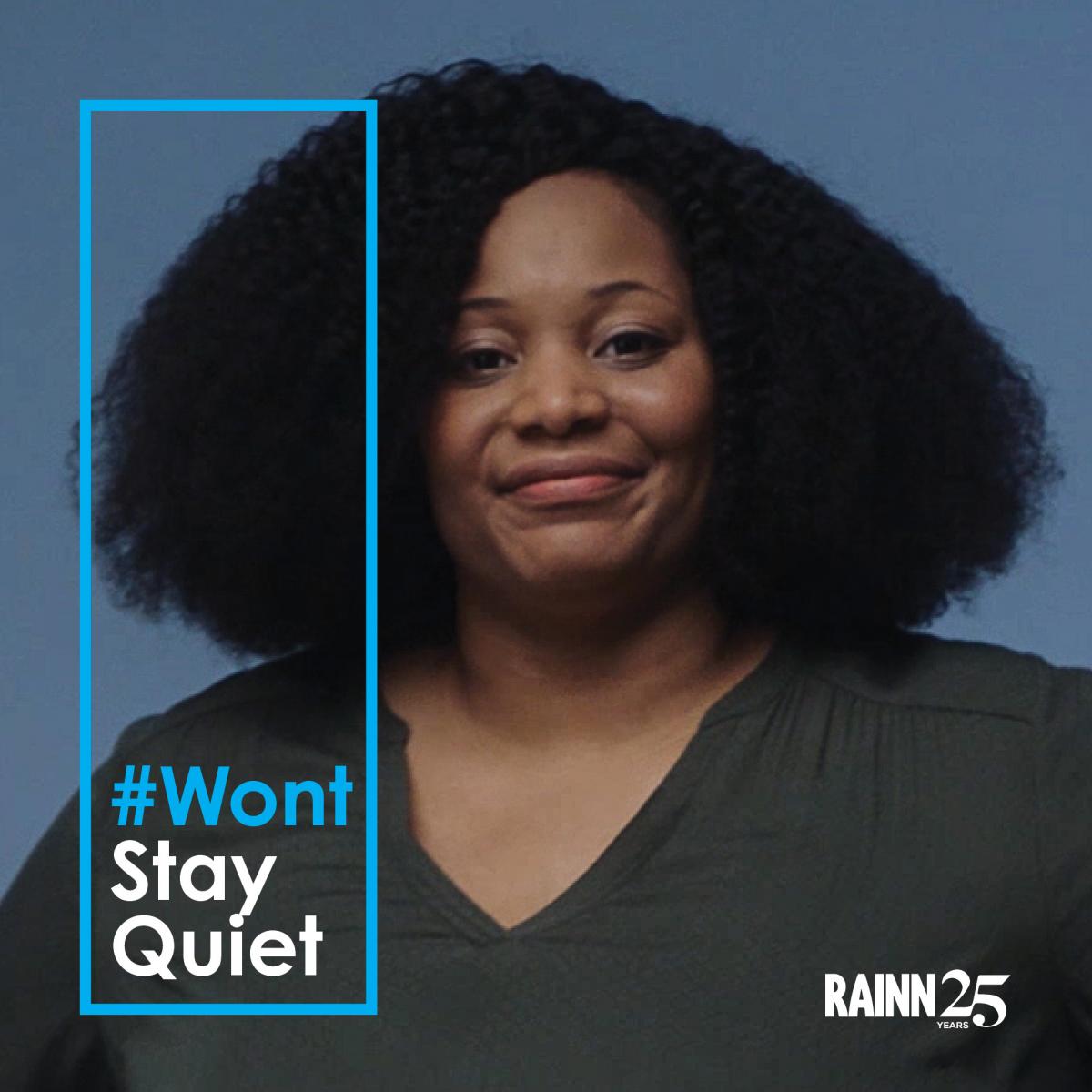 What's your call to action what do you want more people to understand about sexual violence?
What's your call to action what do you want more people to understand about sexual violence?
“We're stronger together than apart. When we share our stories, it's not for pity, but for us to better understand and help others to understand.”
Describe what it was like being on set at the PSA.
“As soon as I walked on set, the staff/crew were so welcoming.” “We knew what happened to all of us and we could have real conversations about life.”
What do you hope people get from watching the PSA?
“That we are stronger together and it's okay to be vulnerable in this way (vulnerability is strength, not weakness).”
What advice for other survivors or other loved ones of survivors do you have about the healing process?
"Healing is not a one-shot action, it is a process. So many voices in the world suggest that we are supposed to follow a series of steps and then be healed and this is unrealistic. There is no one perfect list of instructions that works for everyone, so don't criticize yourself if you don’t feel you have healed in the timeline people expect. Look at the advice around you, take steps toward your healing, but don’t get lost in the world’s expectations of what your healing is supposed to look like."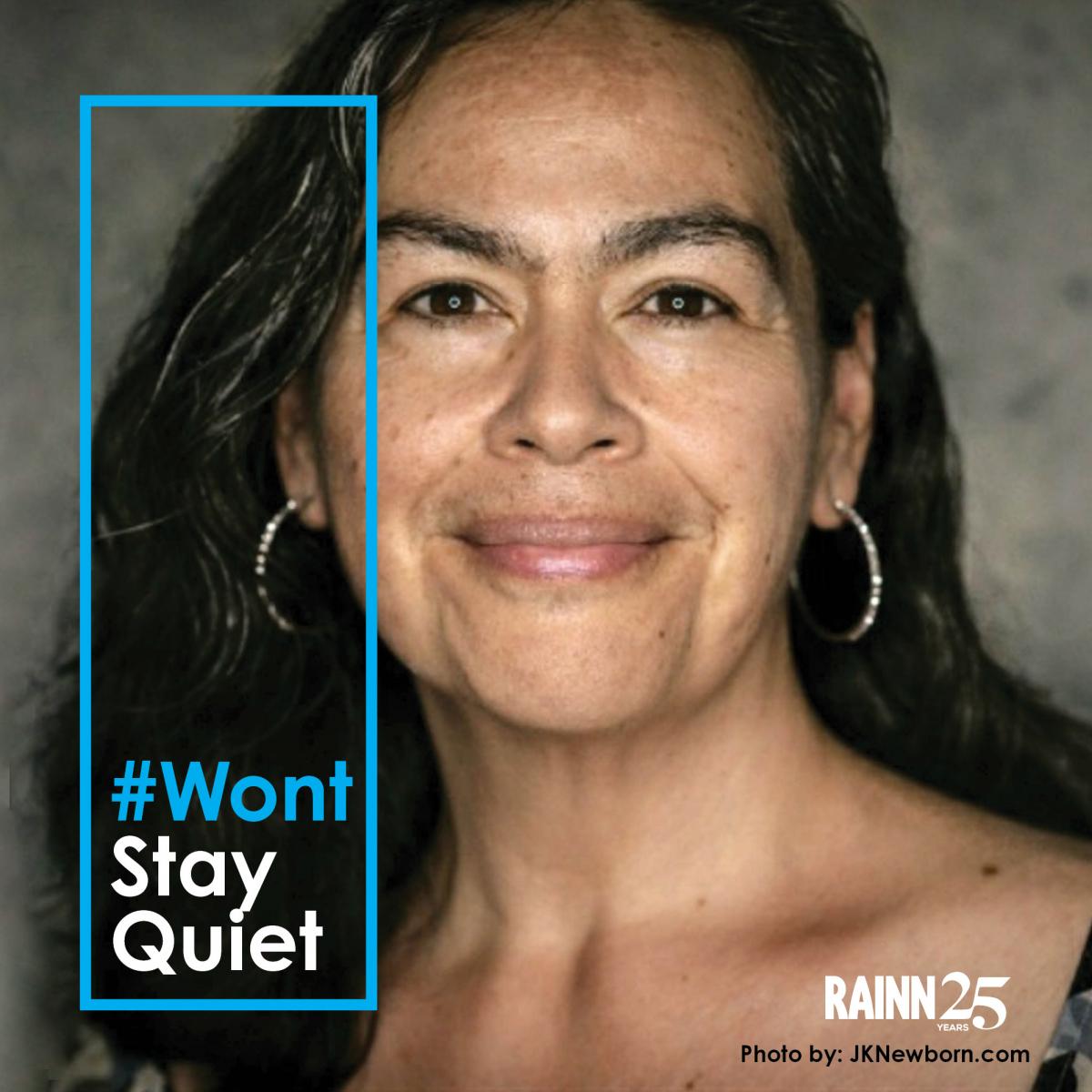
Why do you refuse to stay quiet about this issue?
"I’ve lived many years trying to follow the rule of keeping the secret. I’ve learned, though, that the dark secrecy in forced silence is what breeds shame and leads to what sometimes feels like a lifetime of spiritual pain and hopelessness. Breaking the silence is critical to healing, individually and as a society."
Describe what it was like being on set at the PSA.
"I definitely found the strength I expected, but also something else. I felt completely acknowledged and even cared for by the other survivors. I was warmly affected by the level of consciousness and warmth everyone offered. It was a healing experience to be around so many people in different places of their own healing journeys."
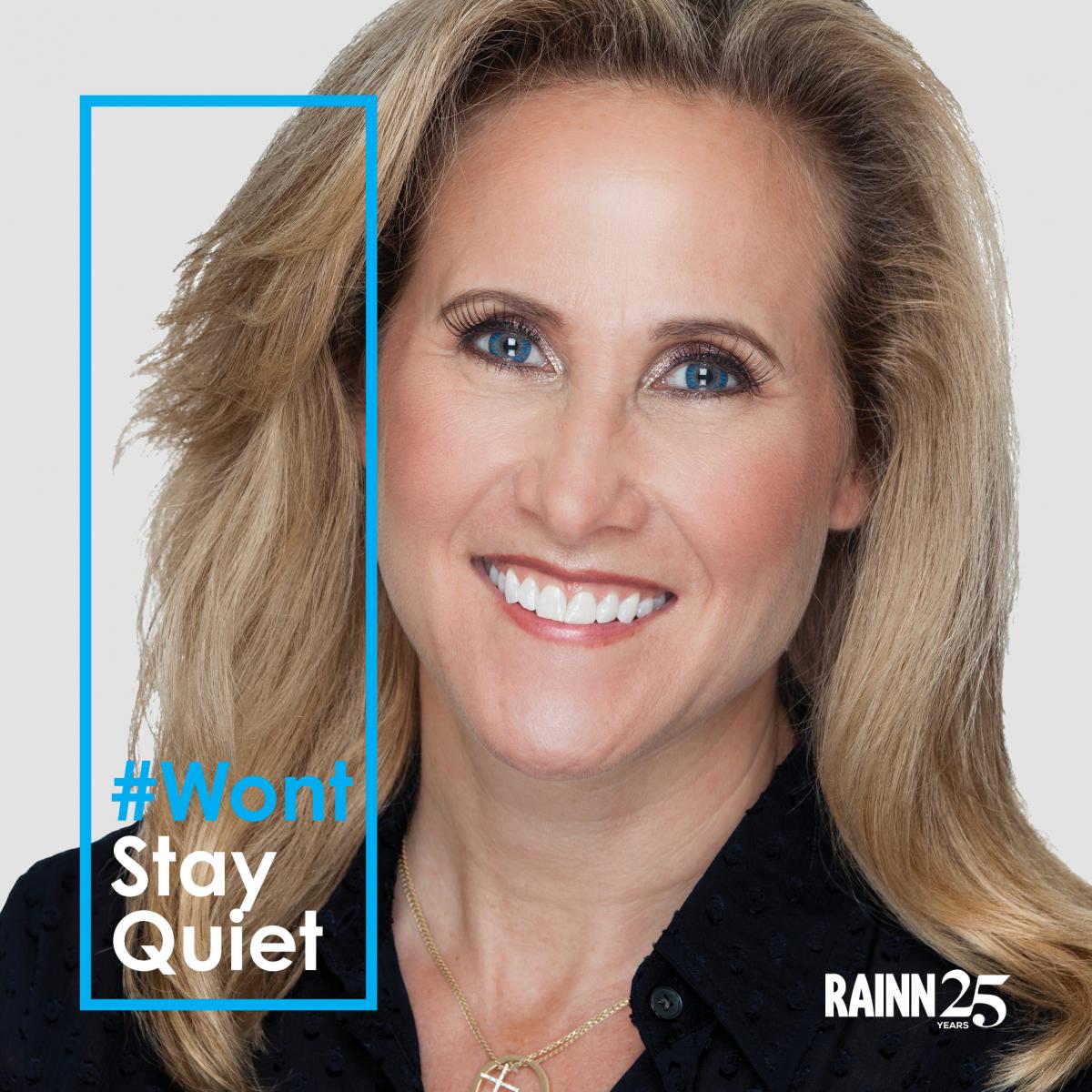 Why do you feel passionate about telling your story (or helping others to tell their stories)?
Why do you feel passionate about telling your story (or helping others to tell their stories)?
“Once I owned my story and began talking about it and sharing, it lost its grip on me. It's hard to come forward, but it's incredibly freeing. Courage is contagious. My hope is that other survivors will find their voice and be heard and start to heal.”
What advice for other survivors or other loved ones of survivors do you have about the healing process?
“Trust your process. Everyone heals differently. It is a journey that goes up and down and sideways. There may not be a finish line, but there is an amazing life to be had.”
Why do you refuse to stay quiet about this issue?
“If sharing my story helps just one survivor come forward, or one parent have the difficult discussion in their household, it's worth it.”
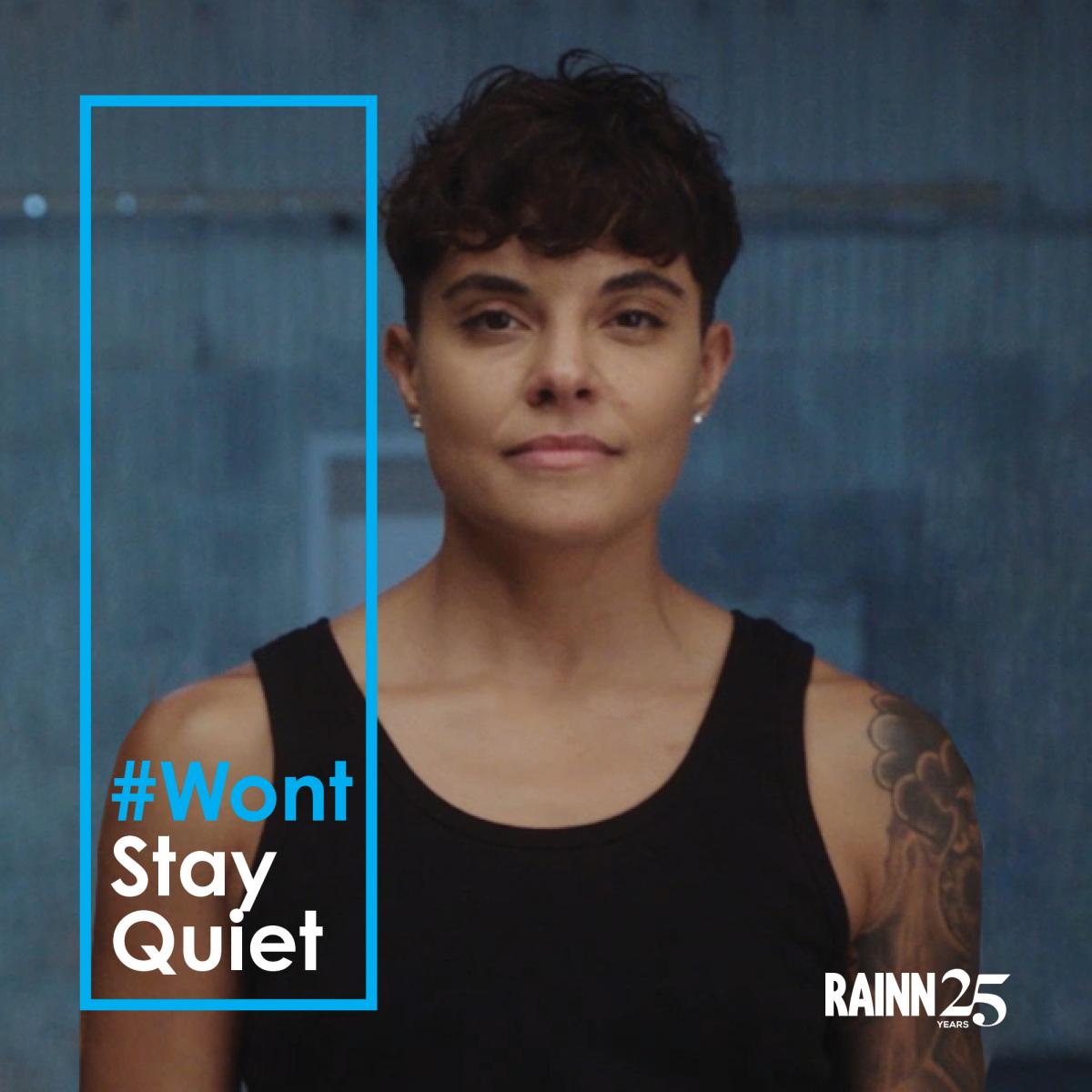 What should no one have to experience in terms of reactions from loved ones when disclosing, or interaction with law enforcement, or medical professionals?
What should no one have to experience in terms of reactions from loved ones when disclosing, or interaction with law enforcement, or medical professionals?
"Guilt and embarrassment. Those are normal feelings but helping to eradicate the stigma around abuse and assault is necessary."
Why do you feel passionate about telling your story (or helping others to tell their stories)?
"Opening up and speaking on my experience has helped tremendously in the healing. Knowing I’m not alone is a big step forward and I want all survivors to know they have a safe space to share and be heard."
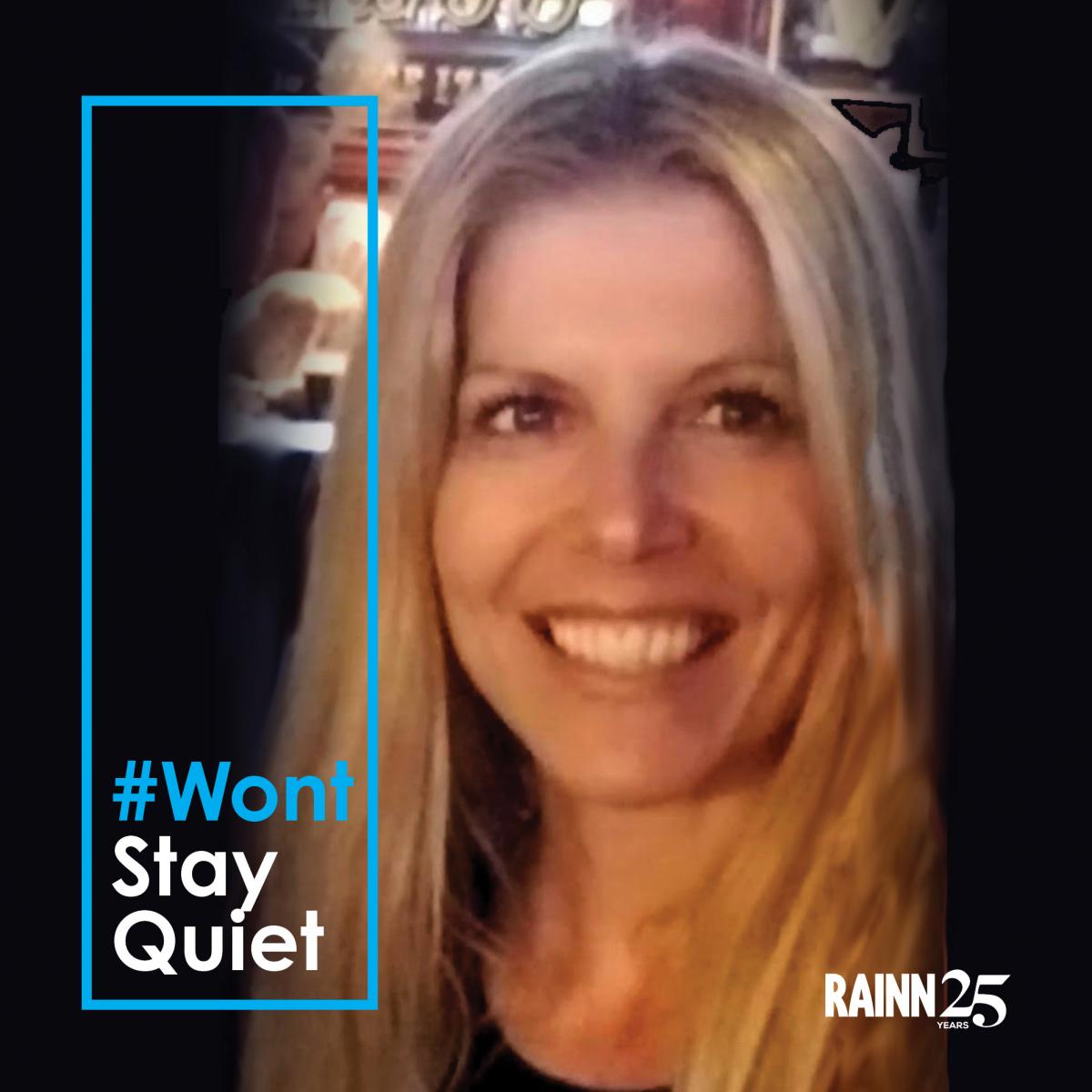 What advice for other survivors or other loved ones of survivors do you have about the healing process?
What advice for other survivors or other loved ones of survivors do you have about the healing process?
“Healing is not as scary as you think once you get to the other side you actually have the upper hand you know you can handle anything.”
Why do you refuse to stay quiet about this issue?
“It's an issue that people are afraid of the more aware we are, the more boundaries are set and people stay strong the less likely it is to happen again.”
Describe what it was like being on set at the PSA.
“I was very impressed by the women I met and saw myself in them. The way they expressed themselves through laughter and jokes such a huge coping mechanism, I saw so much courage and strength.”
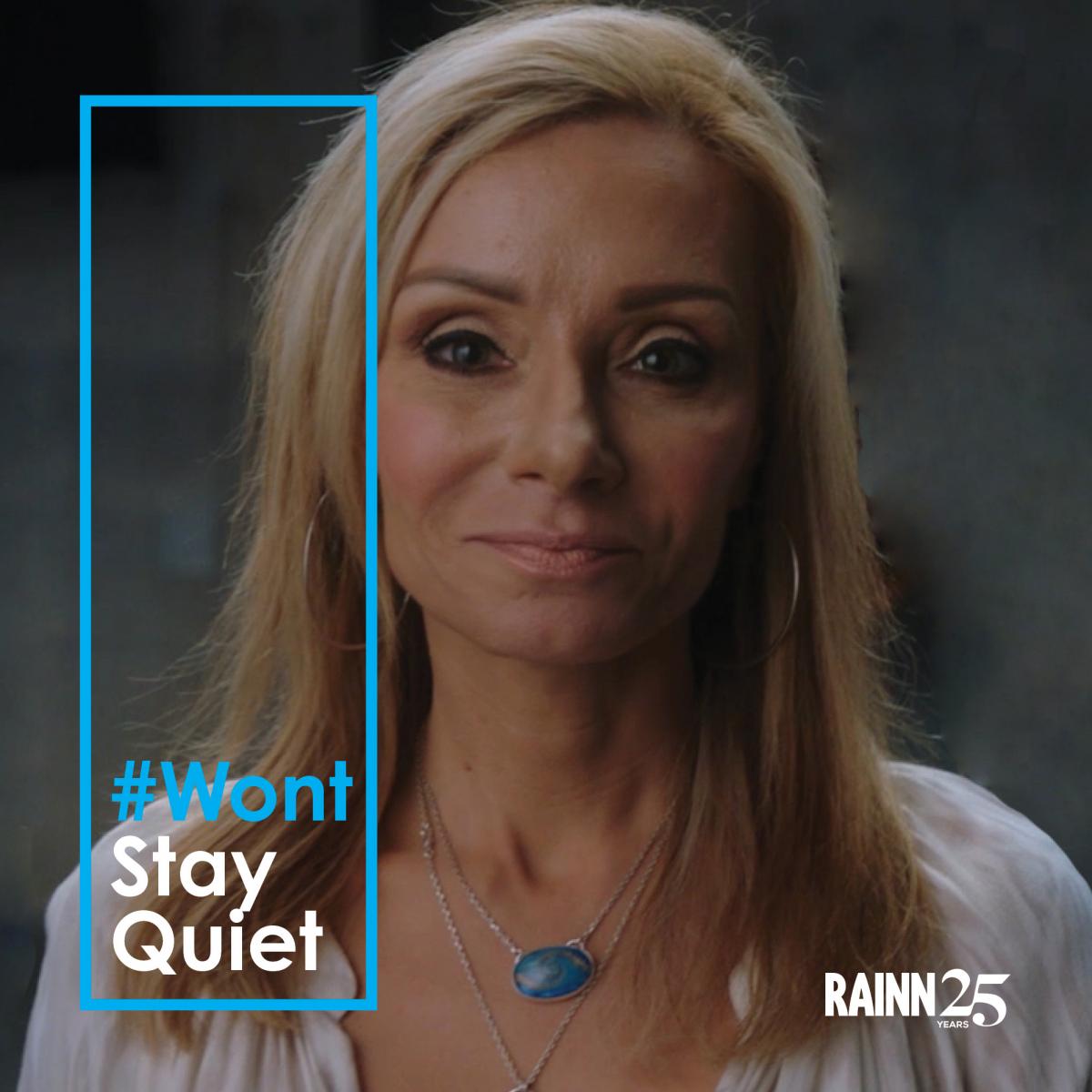 What do you do each day to make sure survivors' voices are heard?
What do you do each day to make sure survivors' voices are heard?
"I listen. I encourage others. I tell my story when needed."
What do you hope people get from watching the PSA?
"That survivors come in all shapes, sizes, genders. We won't we quiet. We won't go away. And we are here to help you."
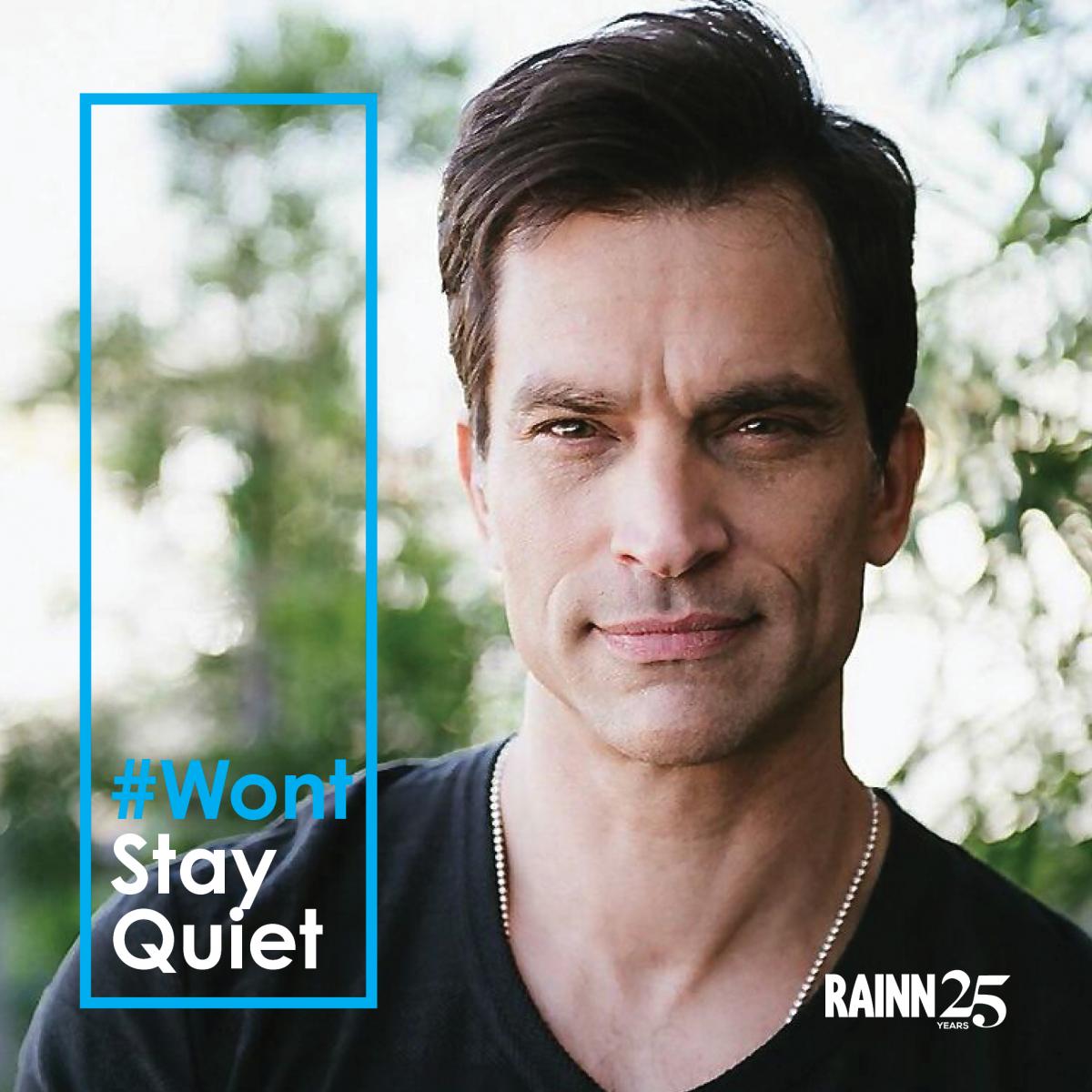 What’s your call to action
What’s your call to action
"What do you want more people to understand about sexual violence? Men who have suffered sexual assault feel shame, and self-doubt. It's important to know that it is not your fault and you are not alone."
Why do you refuse to stay quiet about this issue?
"I won't stay quiet, because I have a limited amount of years to teach my son right from wrong. He will lead the culture of tomorrow."
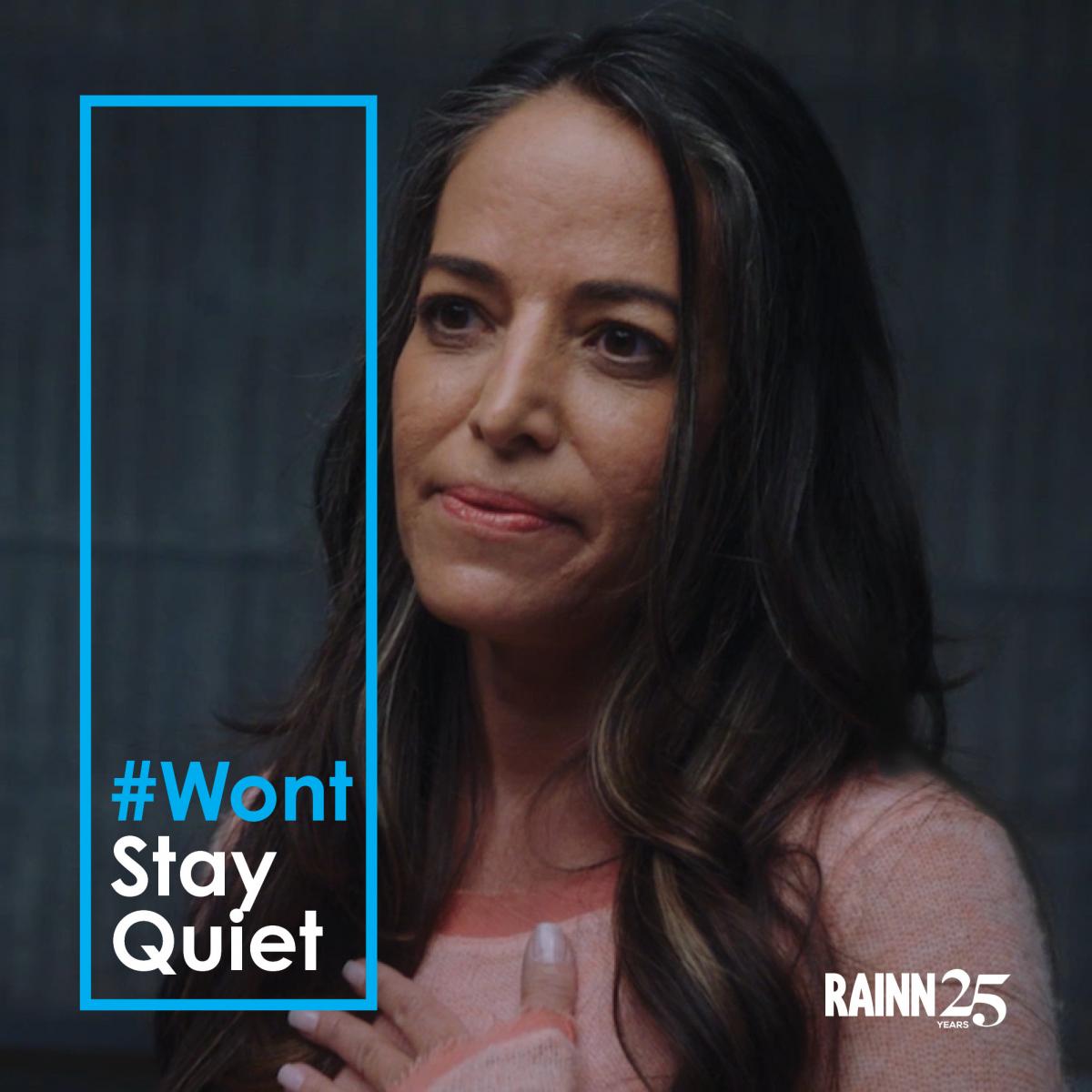 What advice for other survivors or other loved ones of survivors do you have about the healing process?
What advice for other survivors or other loved ones of survivors do you have about the healing process?
"We have to find our own individual ways of healing and it takes a lot longer than we think it should, but don’t give up and let go of any guilt associated with the healing process."
What do you hope people get from watching the PSA?
"Awareness and a sense that it’s okay to be honest and come forward. That they see sexual assault happens to all kinds of ordinary people at many different ages and we MUST stand together in order to make a change."
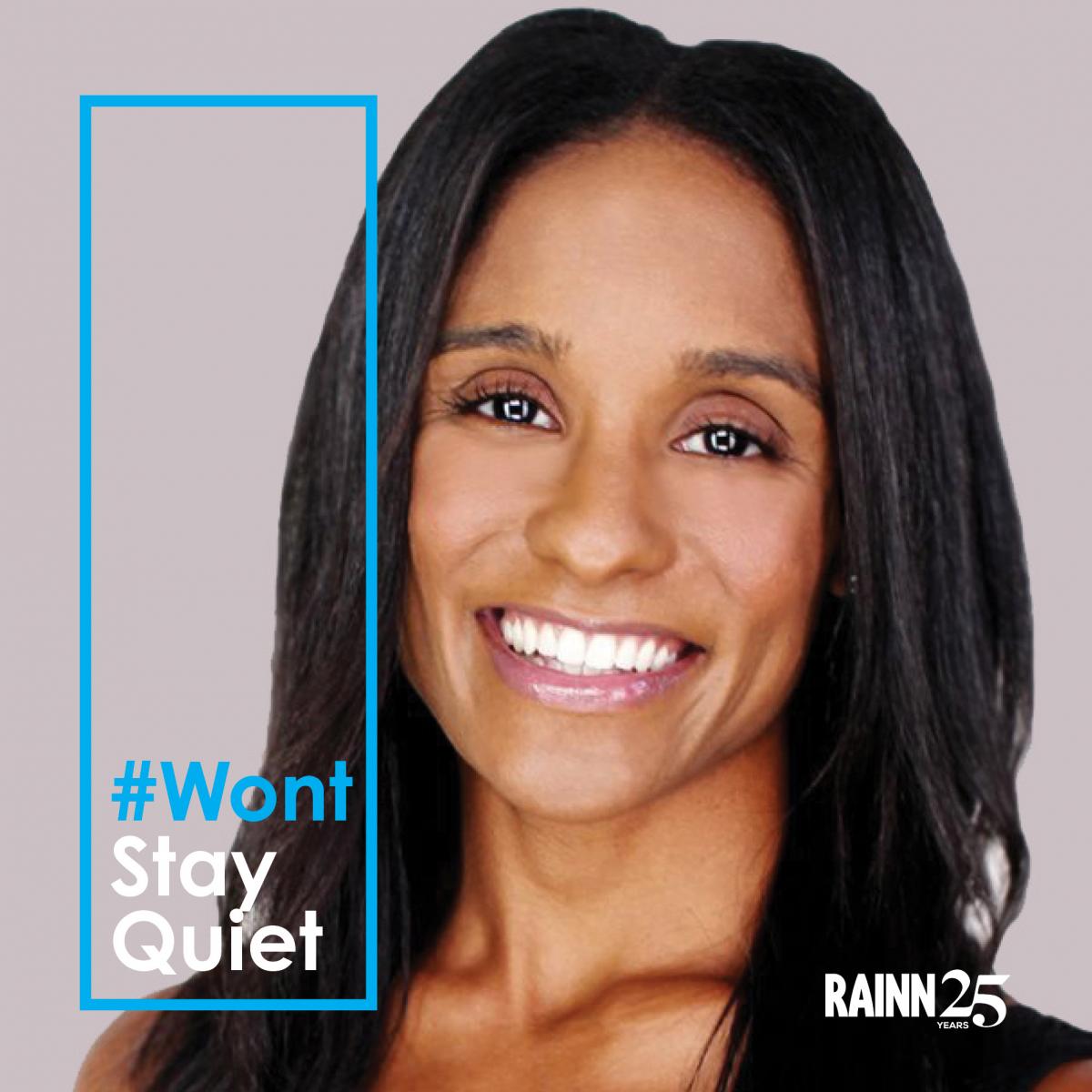 What's your call to action what do you want more people to understand about sexual violence?
What's your call to action what do you want more people to understand about sexual violence?
“That it is more common than you think it is, and that it must become a subject that people are willing to speak about consistently, openly, and with evolving awareness.”
What are three words that describe you using the following sentence: I am…
“I am unstoppable, resilient, and whole.”
Why did you want to be a part of this PSA.
“To be apart of the evolving narrative around sexual violence and remind people that we are to be seen, heard, taken seriously, and that change happens when we are united.”
Describe what it was like being on set at the PSA.
“I felt free to feel whatever it was that I needed to feel, and I felt heard by those that could hold space for my experiences.”
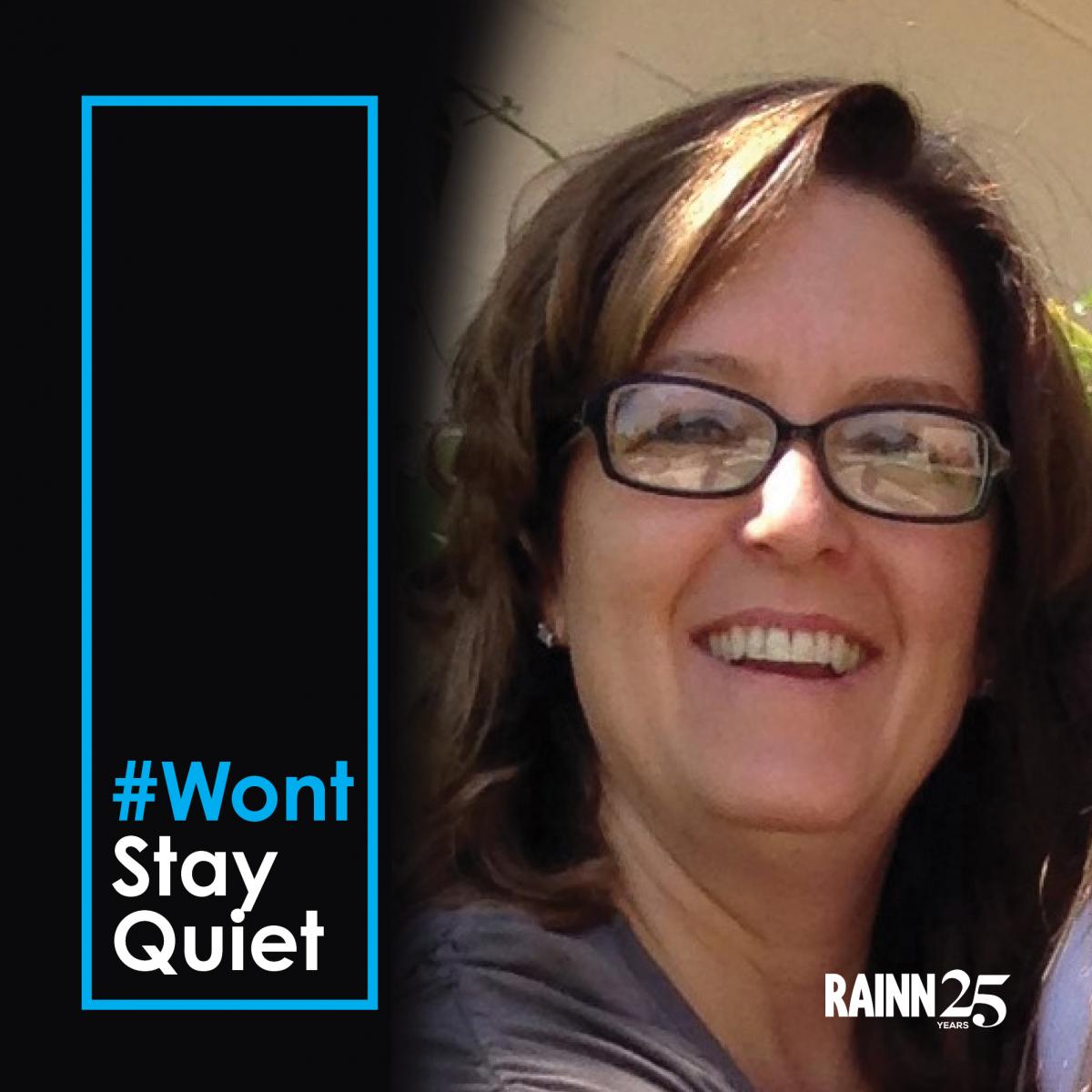 Why do you refuse to stay quiet about this issue?
Why do you refuse to stay quiet about this issue?
"Silence erodes the spirit."
Describe what it was like being on set at the PSA.
“I felt supported and cared for. I felt power as a group.”
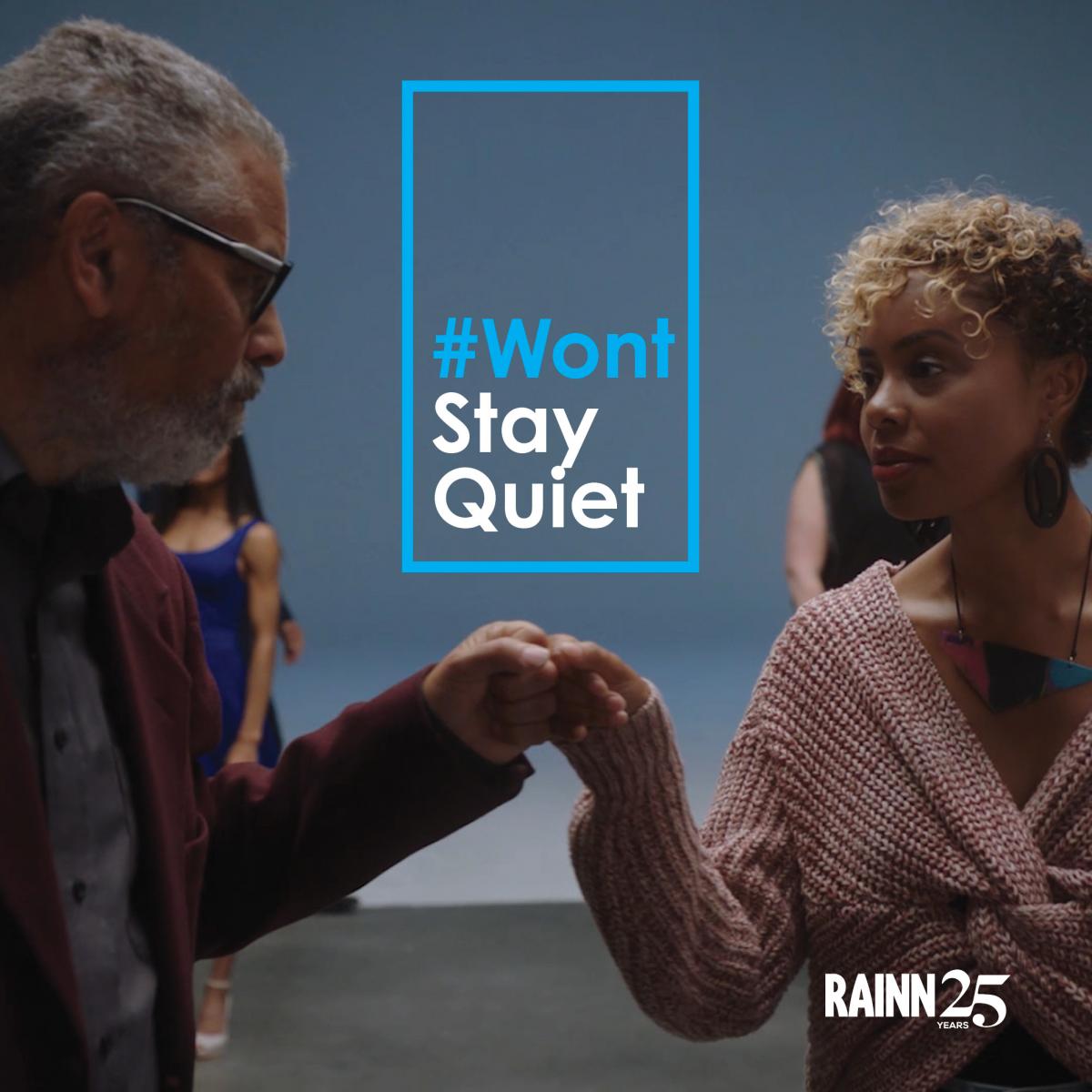 What should no one have to experience in terms of reactions from loved ones when disclosing, or interaction with law enforcement, or medical professionals?
What should no one have to experience in terms of reactions from loved ones when disclosing, or interaction with law enforcement, or medical professionals?
“No one should experience blame; judgement; feelings of guilt; or be pressured to act beyond their capacity or before they are ready.”
What advice for other survivors or other loved ones of survivors do you have about the healing process?
"Choose your healing path and recognize it takes work; empathy for yourself and others; consistency and stamina; and the conscious decision to BE WELL.”
What do you hope people get from watching the PSA?
“We hope they gain the courage to choose their own healing path, and choose the ethical Non-Abusive Allies in their lives. We hope watching the PSA makes them feel less alone, and that their allies are closer than they think/imagine.”
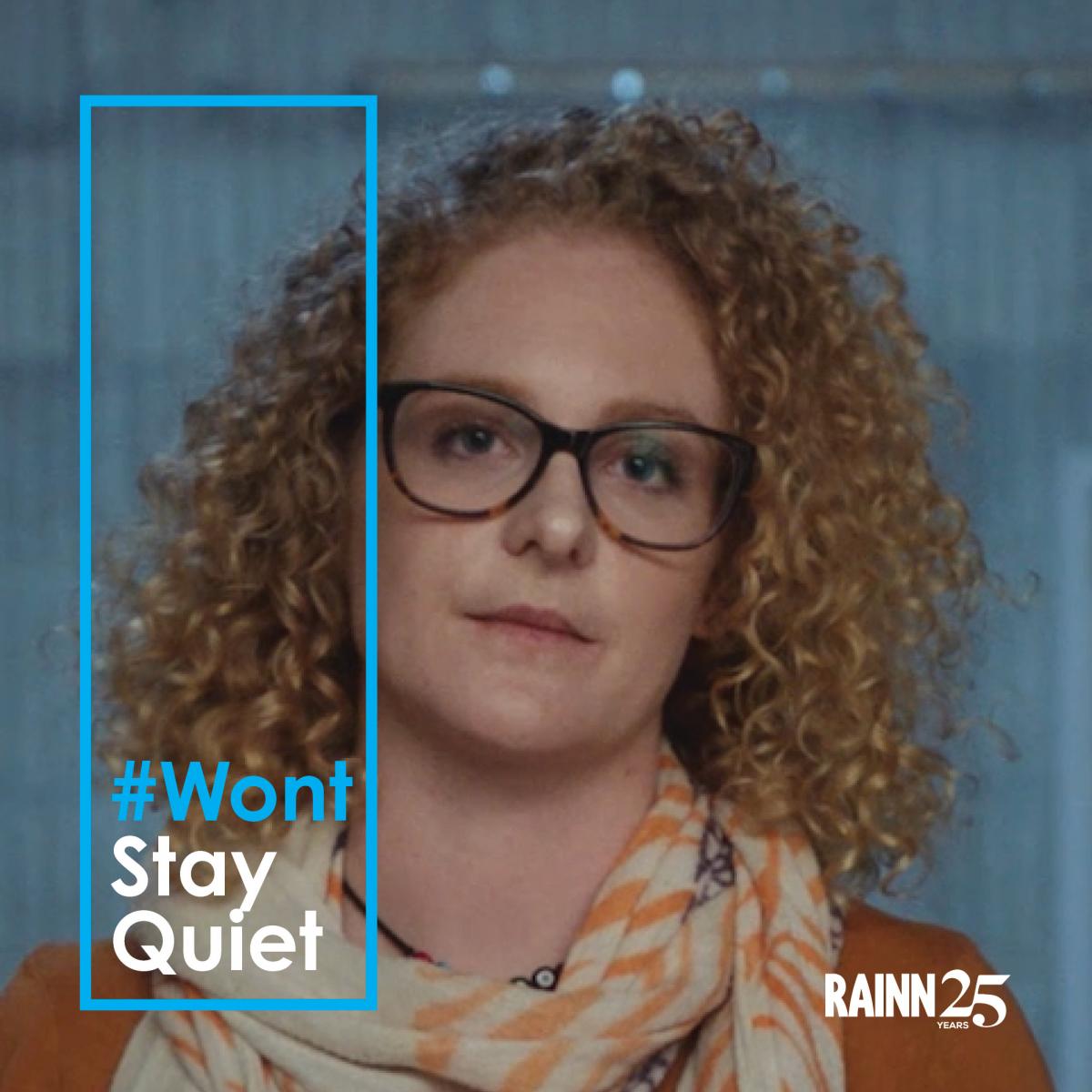 What should no one have to experience in terms of reactions from loved ones when disclosing, or interaction with law enforcement, or medical professionals?
What should no one have to experience in terms of reactions from loved ones when disclosing, or interaction with law enforcement, or medical professionals?
“A survivor shouldn’t have to hear phrases like, 'Why didn’t you tell me this was happening?' When it comes to trauma, nothing that happened to you 'should have happened,' but it did. Unconditionally accepting the present tense helped me to let go of my guilt and anxiety surrounding what I should have done differently or what might happen to me again.”
What advice for other survivors or other loved ones of survivors do you have about the healing process?
“Let yourself feel everything without judging the emotion. You'll experience feelings that don't make any logical sense, that feel ugly, and that contradict each other. That doesn't mean the emotion is any less true. It's oxymoronic, but the more you embrace those feelings, the faster they pass.”
Describe what it was like being on set at the PSA.
“All the staff knew my name from the moment I arrived. I felt welcome, and respected. We had a job to do, but it was clear that my feelings about how we did the job were important.”
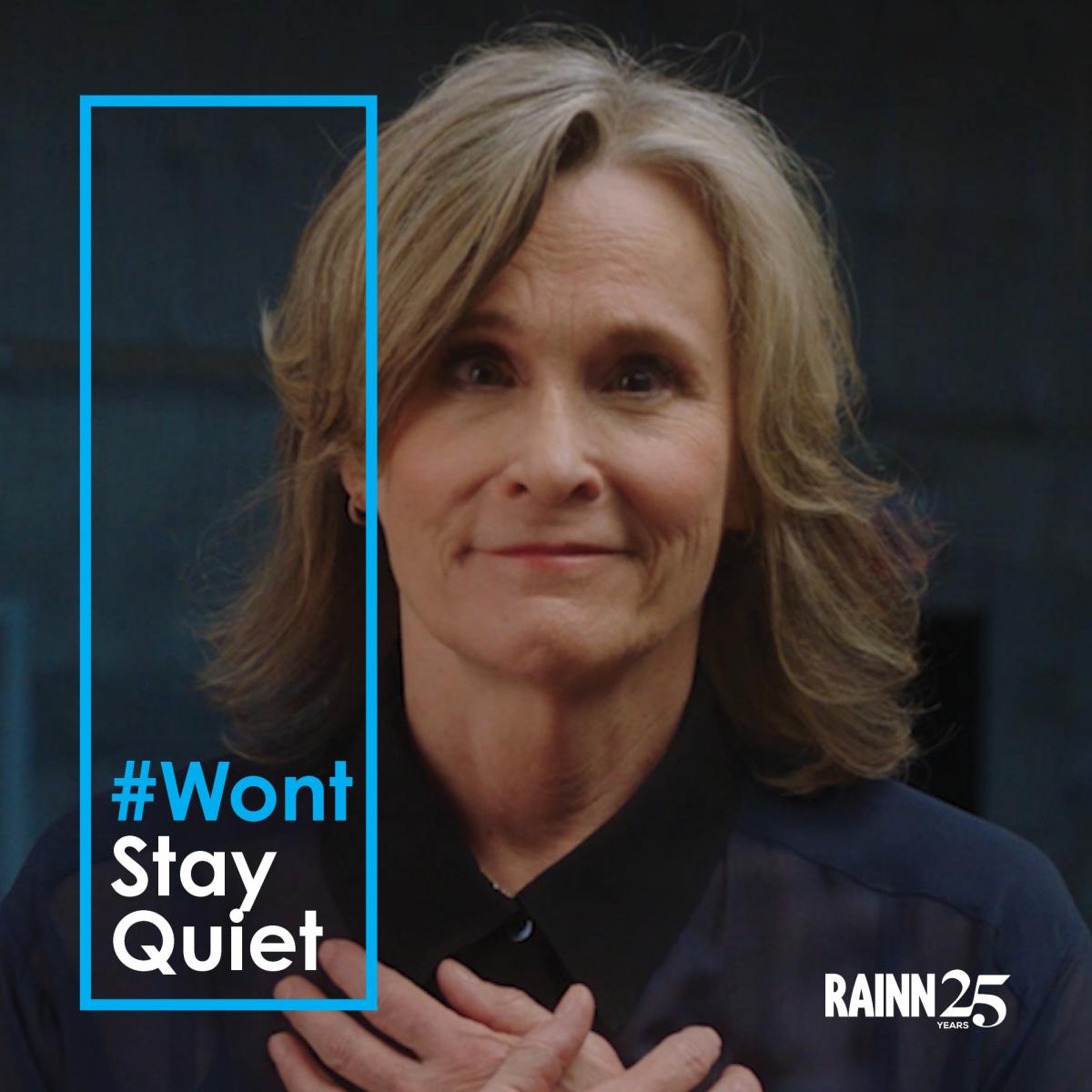 Why do you feel passionate about telling your story (or helping others to tell their stories?
Why do you feel passionate about telling your story (or helping others to tell their stories?
“The healing I've experienced has been directly related and proportional to my speaking out about what happened to me. After 40 years of keeping the awful secret, I found out who my perpetrator was from a random article I read on the internet. He was a serial predator, indicted in 2009 in NYC on 153 counts of sexual assault for raping young actresses at auditions, just like he had me in 1971. If those women hadn't told their stories I might never have begun my journey to health and healing.”
What advice for other survivors or other loved ones of survivors do you have about the healing process?
“The healing process is not linear. I often took one step forward and then two steps, or 500, back.”
What do you hope people get from watching the PSA?
“There are so many different types of people whose lives are affected by sexual violence represented in the PSA. I hope that survivors who see it, see hope and healing for themselves.”
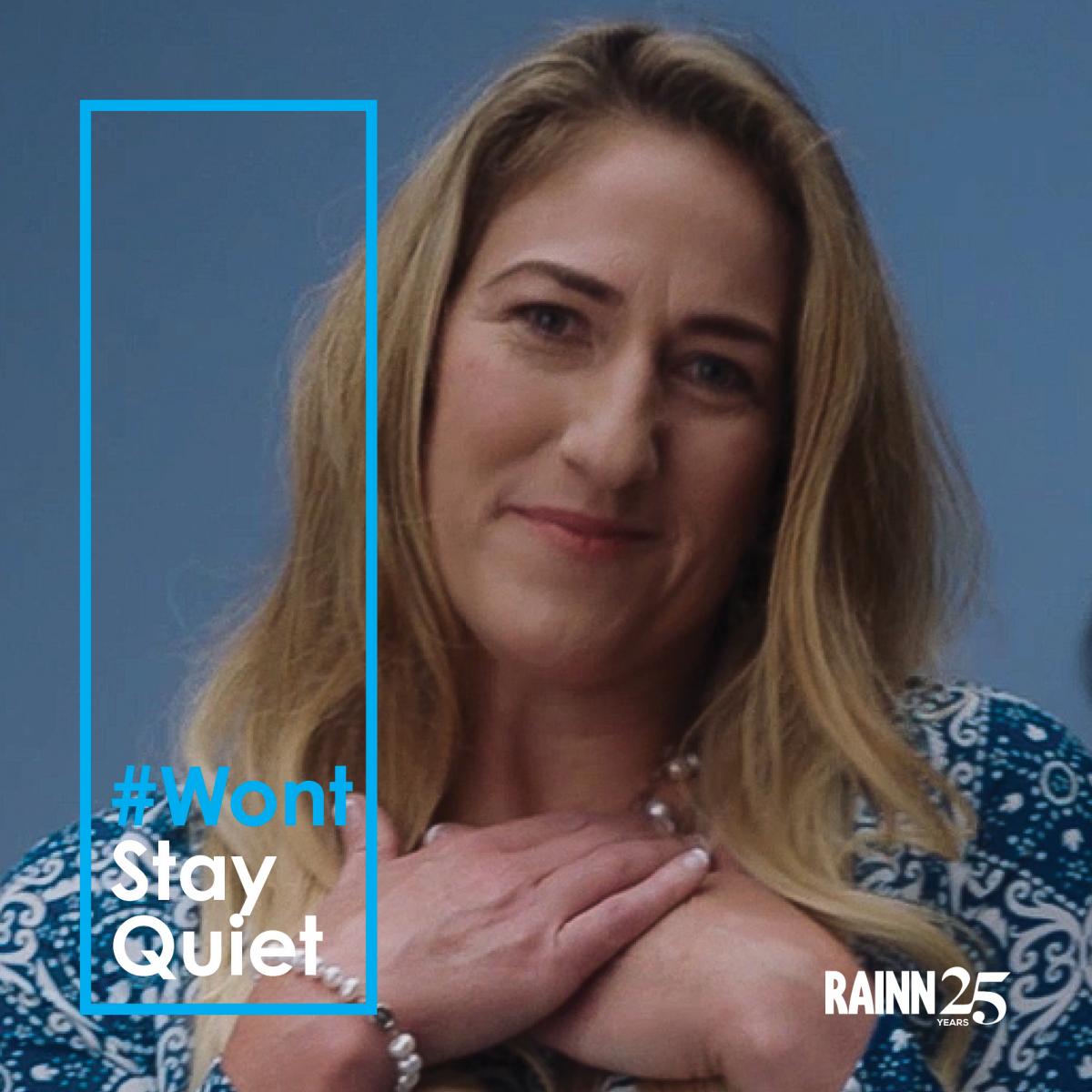 What's your call to action what do you want more people to understand about sexual violence?
What's your call to action what do you want more people to understand about sexual violence?
“Know that you are not stronger being silent, you are just more isolated. Know that you are not being respectful when you don't engage, you are perpetuating silence. Speak your truth. Strength, healing, and hope come from finding that safe place where you can exhale. Believe when someone shares their experience. Hold a safe space, be present for them and listen.”
Why did you want to be a part of this PSA?
“I spent 25 years never speaking out publicly about my experience. RAINN offered me the safe space that I didn't even know that I still needed. I want others to know that there is a safe place for them. There are deeply compassionate people who are here for you. They are here to listen and support you, whatever your experience.”
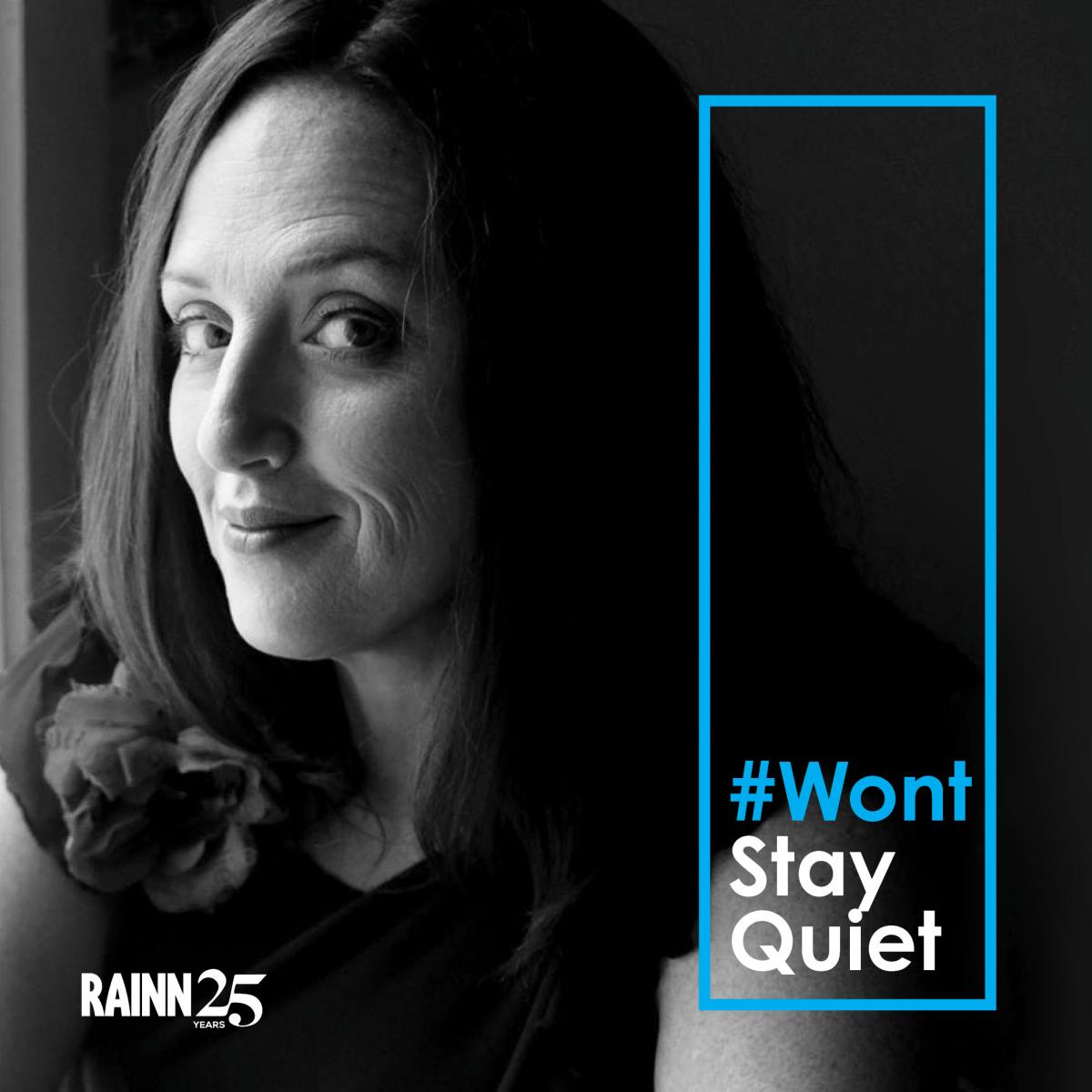 What advice for other survivors or other loved ones of survivors do you have about the healing process?
What advice for other survivors or other loved ones of survivors do you have about the healing process?
“Use what is in your hands to tell your story. Maybe that's a camera. Maybe it's a keyboard. Maybe it's a paintbrush. Maybe it's a podcast. Whatever it is, use it...loudly.”
Why did you want to be a part of this PSA?
“Partnership with fellow advocates in other places. Connection and shared story. Exponential impact.”
What do you hope people get from watching the PSA?
“Awakened. I hope people get awakened to the pandemic of sexual trauma and work to be part of the solution. I hope they get as fired up as we are, and then I hope we all change things. For good.”